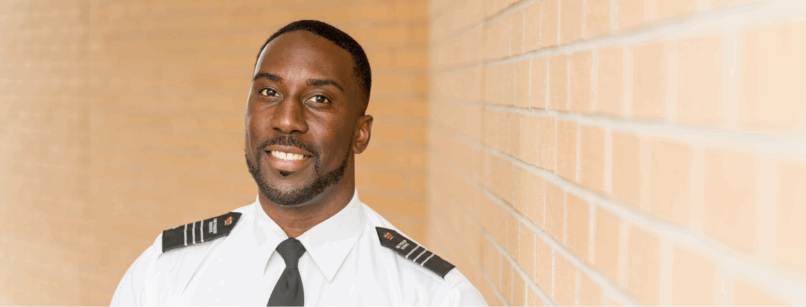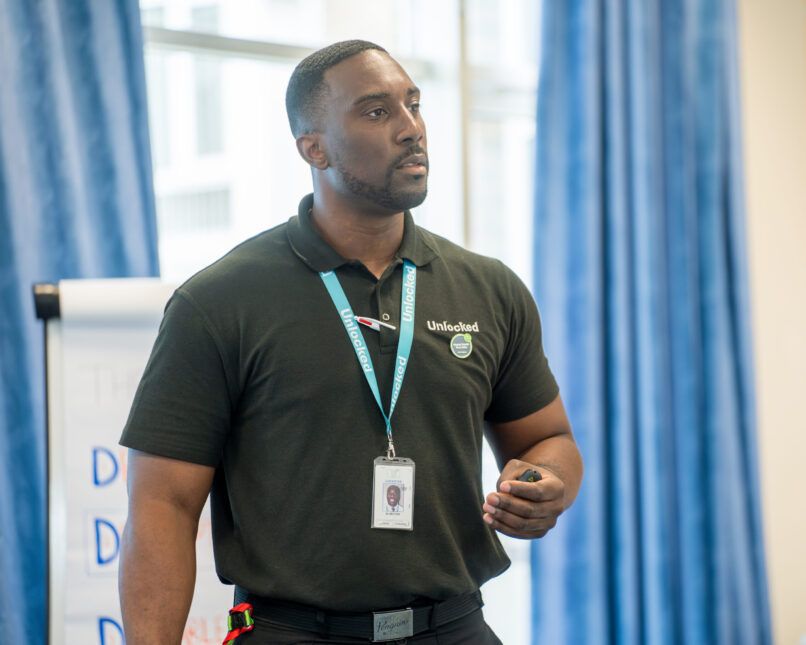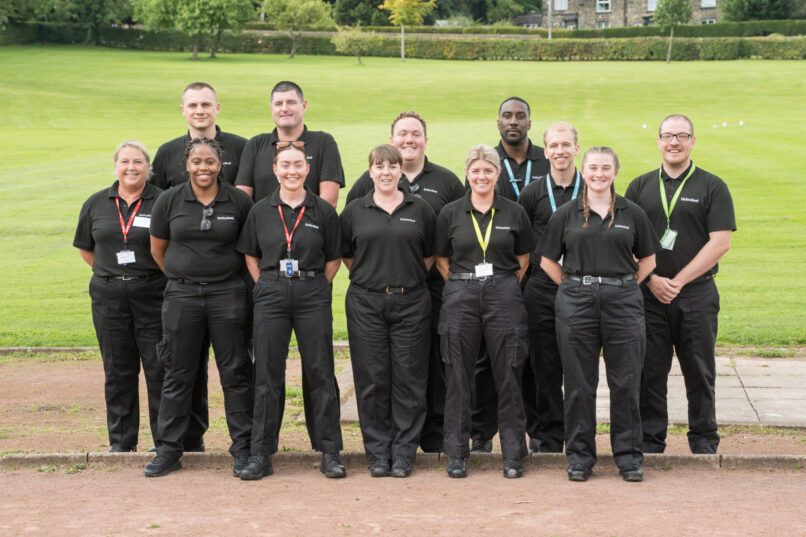“Hidden Heroes Day is a chance for people to pay tribute to the usually unsung hidden heroes who work in prisons, IRCs, probation and youth justice across the UK.”
– The Butler Trust
As frontline workers, prison officers have more contact with prisoners than any other professionals, and so have the power to make a real difference.
To celebrate and recognise hidden heroes across the UK, we talked with one of Unlocked Graduates’ Mentoring Prison Officers, Mahlon Hector. Mahlon is currently working as a Mentoring Prison Officer supporting participants across our south region.

What does being a frontline worker mean to you?
“For me, being a frontline worker means being able to impact the lives of individuals within custody in a positive way. Many prisoners may have had their lives impacted from such a young age because they may have had different upbringings and challenges, whether that be foster care or juvenile centres for example, and then they have progressed towards prison on that downward spiral. I’ve found that this can happen for many reasons, be it that they’ve not had that supportive role model at home or been nurtured in the right way, and now they’re almost trapped in a negative cycle.
So, I see my role as placing myself to have meaningful interactions with prisoners, helping them to see long-term how they can make those changes, not just for themselves, but to also impact others in a positive way.”
What is your proudest moment as a prison officer?
“There are many moments that I’m proud of. One that comes to mind is when I was recognised by my Governing Governor for my interactions with a prisoner who had been coming to prison since he was a teenager. He was feeling particularly low this time around in prison, but things that I did that I thought were simple, like having a conversation, “have you had your newspaper delivered”, all led towards him making positive progression and feeling a lot better. His self-esteem improved, and he generally remarked that he’d never had an interaction like that since being in prison.
It made me feel the importance of my work as a prison officer. Also, it made me feel appreciated, both at the level of the prisoners and also at a senior management level for the efforts that I was making. Especially as at that time, I was still in my first year of working as an officer.

Who are your heroes in the prison service?
“One hero that sticks out for me is my previous Supervising Officer (SO). He came from another establishment, and at the time I had been working in the basement of the prison, where a lot of work that we put in wasn’t recognised. For me, joining the prison service in my mid-thirties, I like to remember that “it’s a marathon not a sprint,” so I see my career as a marathon. I’m on this long jog, and sometimes you get a bit depleted, you need to be re-energised, you need a sip of water, and I’m looking around and there’s no one running with me. But all of a sudden there’s somebody who shows up that has the same mindset as me, they’ve seen my appreciation for the service and what impact I could have long term.
My supervisor was able to empower me, to coach me and mentor me. So, where I wasn’t sure of where to go or how to get to the next stages, I had that one-to-one support. It motivated me to become a Mentoring Prison Officer with Unlocked Graduates. Sometimes it takes that second perspective to recognise your strengths and see your capabilities. He was my cheerleader, and he still is to this day.
Being here now and working as a mentor myself, helping my participants to work on their strengths, is the best decision I have made.”
Can you tell me about a prison officer you know who has gone above and beyond to provide care for a prisoner?
“I think that all officers are going above and beyond, but I especially respect the responsibility of induction, those working on the first nights, or the induction centre. You have individuals often coming in for the first time, they’re separated from their families, and some maybe also experience English language barriers. Those who work within first night centres really do have a wealth of experience and really do know their jail craft.
These are the people who can make the biggest difference and give someone the hope they need coming into custody. It can be a very daunting experience, everything is unfamiliar. But having those conversations with staff and breaking things down, being able to communicate effectively – that can make the difference between someone opening up or shutting themselves off.
Prison officers like a previous Unlocked Graduates participant Max, who massively reduced prisoner self-harm in the first 48 hours at HMP Belmarsh, have an incredible impact. That support in those first days can be the difference in helping someone to turn their life around.
Sometimes individuals aren’t necessarily recognised for what they do well. And rewinding back to lockdown, it was emphasised that the prison service is often the forgotten service. But there is so much that goes on behind those walls which the general public are unaware of. When you boil it down, it’s a whole community, just behind a gated wall.
We play so many roles as prison officers, one moment we’re a fire marshal, the next a mental health first aider, or a teacher, we’re changing hats continuously. We are heroes. The fact that we don’t wear capes doesn’t mean that we shouldn’t be recognised for our work.”

Hear more about the one-to-one support given to participants on the Unlocked Graduates Leadership Development Programme from their Mentoring Prison Officer at the HMPPS Insights23 Festival!
Join us online on Tuesday, 3rd October from 2:00 PM – 3:00 PM.
SIGN UP NOW BUTTON: https://www.tickettailor.com/events/hmppsinsights23/943168
This event is open to staff who work in the Criminal Justice System only. Please register with your work email address and you will be asked to confirm your role and organisation at checkout.
This is an online event, taking place on MS Teams.